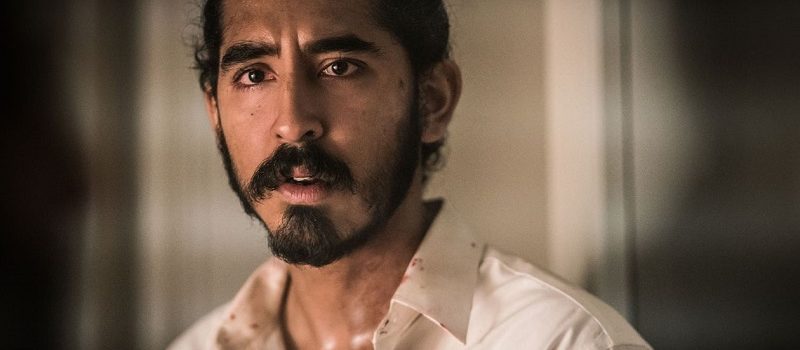The stunning story of how a group of terrorists landed the Indian city of Mumbai and launched a terror attack that played out of four days is expertly told by rookie director Anthony Maras in Hotel Mumbai.
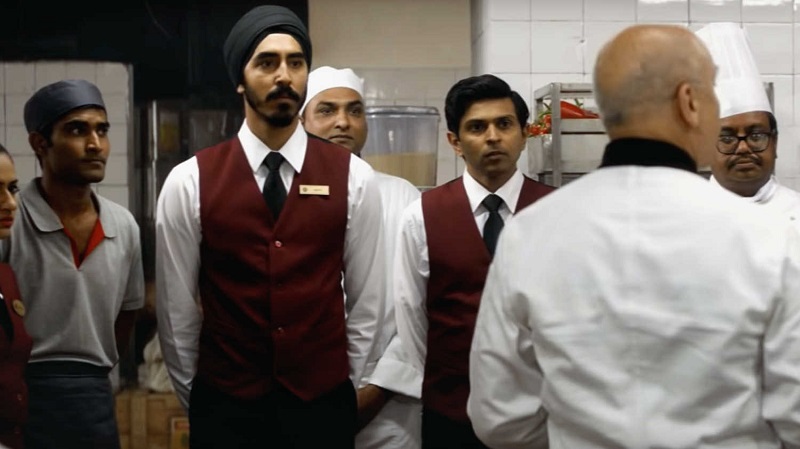
Dev Patel is Arjun, a member of the elite waitstaff at the Taj Hotel. He is married with a small child and another on the way. He, like everyone on the staff of the luxurious and legendary hotel, have a deep seeded commitment to their job. The credo of the facility is even “guests are God.” As the film commences, Arjun is quickly getting ready for work, he is late, and races out the door and on to his motor scooter to traverse the sea of people, cars and bicycles that inhabit the motorways between his run-down apartment building and the lushest hotel in Mumbai.
Some of those deity-revered guests include David (Armie Hammer) and his wife Zahra (Nazanin Boniadi), along with their newborn baby and their nanny Sally (Tilda Cobham-Hervey). Jason Isaacs’ Vasili is a mysterious character, but clearly one who is exorbitantly wealthy, brash and fiercely intense. It is stunning to witness the lengths to which the staff goes to—long before their guests arrive even—and lays the groundwork for what happens once terrorist enter the hotel.
Maras (who co-wrote the script with John Collee) interjects the beginning of this fateful day for all those involved at the hotel with the 10-man terrorist team as these two worlds are about to collide in the most explosive manners possible. Knowing the history of the attack on the hotel, one might forget that this was a massively coordinated terrorist attack. It hit a dozen sites across the city, including the trains station where they shot the Bollywood-dancing conclusion to Slumdog Millionaire. By the close of the four-day siege, 174 people died with over 300 wounded.
As the film’s title suggests, much of the focus on this dreadful day is on the hotel. Maras in no way doesn’t touch on the other attacks across the city. In fact, he does so in such a way that the viewer gets the haunting sense that the police force of the city is grossly unprepared for such an attack and making matters worse is the fact that those in the national law enforcement realm and military in the Indian government, have told those local police officers to wait for backup when SWAT-like teams and military squads can arrive and retake the hotel. The problem is, the delay would result in much loss of life.
As the attack commences, David and Zahra are in one of the elite restaurants at the hotel—along with Vasili. Sally is with their baby in her room and all are shaken to their core when they hear the unmistakable sound of machine gun fire and explosions that permeated through the hotel. It was chaos. There was one thing that kept a surprisingly calm nature to those trapped in the hotel, and it was the staff of the Taj. For those in the restaurant, the head chef Hemant Oberoi (Anupam Kher), Arjun and the other kitchen staff would band together and keep their diners calm (as they could be) by stressing the fact that this particular restaurant is in a secluded part of the hotel and they were able to making it difficult for the terrorists to find them because only those who frequent the hotel would know about this tucked away eatery within the famed hotel. But, as the moments, hours, and days go by, the guests begin to get ancy and start realizing that help is not coming and that they must take their own fate in their hands and look to their esteemed staff to find a way out.
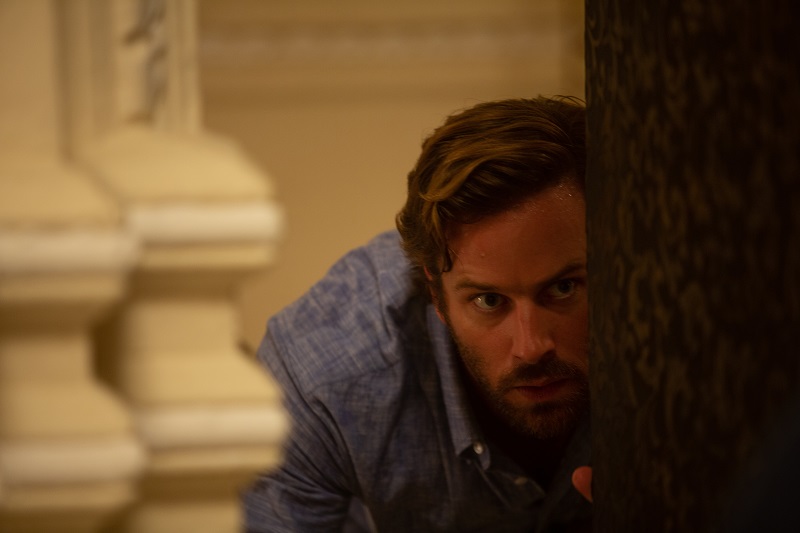
There are countless layers to Hotel Mumbai that make this stunning cinematic achievement move us through a myriad of emotions as we witness the purest definition of heroism, stoicism and folks making the ultimate sacrifice for family, friends and even perfect strangers.
When tackling a true story, especially a terrorist attack, it is a fine line that a storyteller must straddle. Never does one to feel like the event and those that perished are being exploited for the sake of a big Hollywood movie. At the same time filmmakers, and all those gathered to tell this simultaneously tragic and astonishing true tale, must grab audiences by the lapels and never let them go—even after the credits roll. A film like Hotel Mumbai, when done right, should be one that a viewer can never shake. That is absolutely the case with Maras’ true big screen directing debut. It has been weeks since I experienced the life-changing film and it remains something that runs through my mind on occasion through the day, and especially at night when I’m trying to sleep. It haunts, but this is a feeling that mustn’t be disregarded because it is uncomfortable. We can never be numb to the horrors of terrorism and indiscriminate mass killing for the sake of making an ideological or political point. Now that Hotel Mumbai exists, it is forever a tribute to those who perished or were injured, as well as those who raised their voice and said, “not today” to the evil doers who sought to take our most prize possession, the flickering beauty of life.
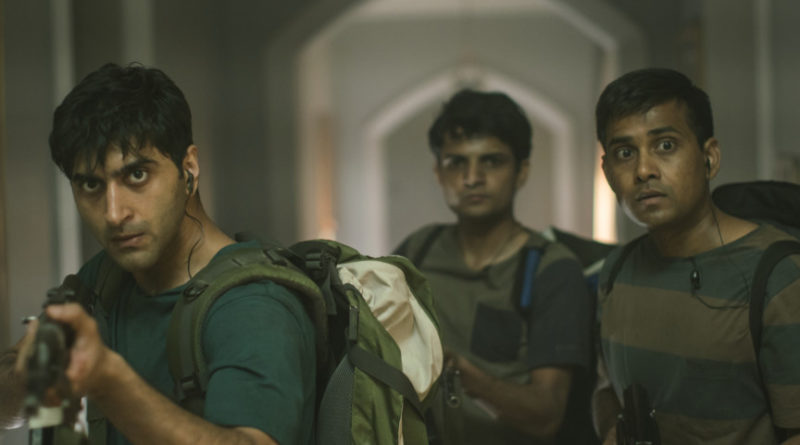
There is also the fact that a city, Mumbai, was rattled to its core for four days until authorities were able to storm the building and kill all but one of the attackers. Filmmakers have a duty to every soul who inhabits that locale to tell a story that is soaked in truth, tribute and is done in such a manner that it inspires and gives us all hope for the human race—even though we are exposed to some of the most barbaric of human nature. Maras should be proud of himself, as should every soul who had anything to do with this artistic tribute to the human spirit.
Not wanting to go into any kind of detail with specifics of the storytelling for fear of lessoning its power, there are just a few moments within the film that need to be hailed. When head chef Oberoi gathers his charges, moments after terrorists pierced the tranquility of the beautiful hotel with their bombastic hurricane of bullets and tells them that there is no shame in wanting to leave when the opportunity rises, a la every man or woman for themselves. Only one leaves, the rest—even though they all have families—stay to ensure that they get out as many of the hundreds of guests out alive as possible. It is a stunning scene that brings tears to the eyes, simply from the pureness of their sacrifice. Another moving moment is the lengths to which a parent will go to save their child. David and Zahra are in frequent contact with their nanny, and she is informing them that these killers are going door to door down the hallways of the hotel and shooting everything that moves. David decides to leave the safety of the secluded restaurant and head back upstairs to rescue his child. It is a selfless act, portrayed beautifully that will challenge everyone who is a parent to keep it together for the length of this film.
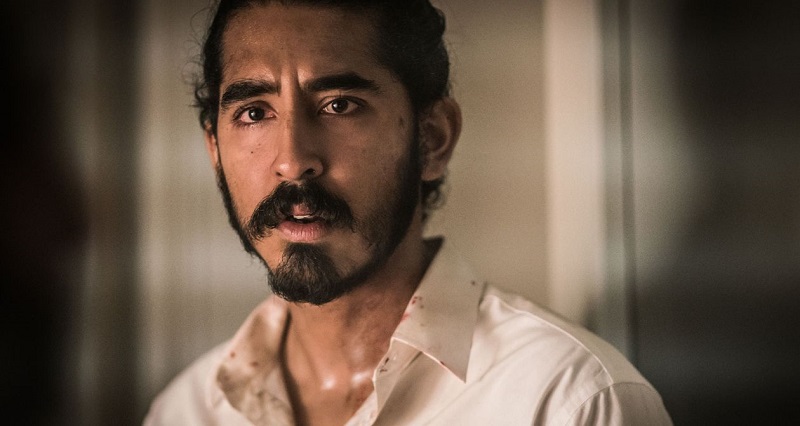
There is also the expertly painted outlying collateral damage that Maras and his team capture. Arjun’s wife anxiously watching the news with one hand holding her child and another firmly gripping the phone, hoping and praying that it will ring with news of her husband’s welfare.
I cannot emphasize the resolve of the people within the hotel enough. It is easy to see why Maras and Collee chose to primarily focus on the goings-on within the Taj. There were many attack sites and many heroes of that day. But there is something overwhelmingly powerful that is discerned as the viewer gets an outside shot of this beloved establishment—with black smoke billowing through windows throughout—accompanied by the soundtrack of automatic weapon fire, interspersed with what has been portrayed of those coming face-to-face with the embodiment of evil within the hotel, that it becomes clear that the terrorist attacks on Mumbai on those four days in 2008 had to focus on the heroes of the Taj.
There are inspirational tales and then there is this kick in the gut/want to do anything we can to aid humanity film that I sincerely hope finds a vast audience. This is an importantly movie, not only because it spotlights the best and worst of humanity in one fell swoop. It is now a living and breathing document of what can happen when people work together and put their petty differences aside for the sake of the common good.
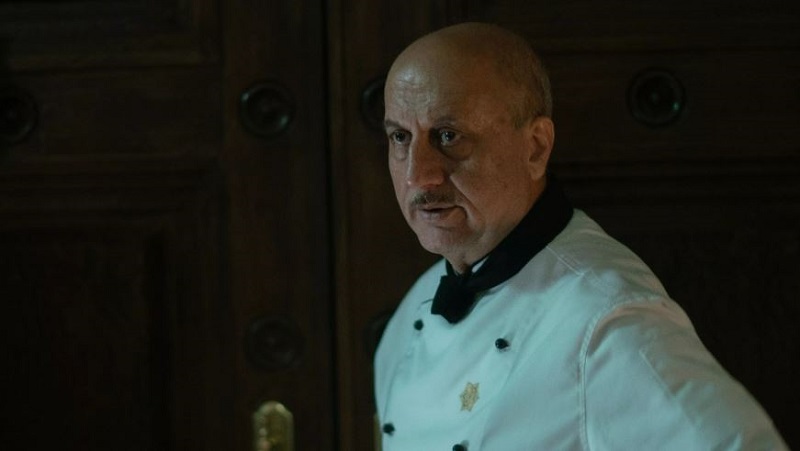
Also, it is fascinating how Maras utilizes the entity that is a faceless fear-spawning terrorist leader. His charges always hear from him and we never see a face. To this date it has never been determined who is to blame for the attack. As such, the film gives off an aura that there is a Geppetto and Pinocchio situation here. Their sole purpose is to kill, and it is done so in such a brutal way that their utter discard for the sanctity of life is portrayed as few films have the courage to spotlight. Ninety-five percent of the films out there with terrorists as their central antagonist try to humanize these miscreants in some small, minute, way—to show that they are driven by ideology, religion, revenge or any number of motivators. We learn their specific issues, sure, but the indiscriminate decimation of life comes off as more vicious than what we’ve seen before. It is truly as if we are in that hotel on that fateful day.
Must-read exclusive Q&A with Hotel Mumbai director Anthony Maras.
The one surviving terrorist didn’t share any information, but it is known that he was operating out of Pakistan—not exactly India’s friend by any means. That too is a fear that permeates Hotel Mumbai. Knowing that India’s arch enemy is housing the man responsible for all this death leads one to the natural progression of thought that focuses on two nuclear powers with tensions that could not be higher. Of course, as history has shown, India and Pakistan never exchanged any kind of fire over this event. For those of us who live for history, it is simply an added level of stress that is tossed into the mix of Hotel Mumbai.
Patel is sensational as Arjun. His heart, above any other body part, plays the biggest role in his heroic turn. He rides a razor thin line between commitment to the hotel, his expecting wife and young child at home, and the larger spectrum that is this close-knit community that came together in the most triumphantly supportive of ways during those dreadful days. Hammer delivers a turn that is among his best. He says little, but so much is expressed through his face, manners and above all else—physical intent. Hammer went the extra mile with this portrayal, and after experiencing the whole that is the movie, it is easy to see why. Through he and Patel, specifically, it is as if they are our eyes and ears of this horrific event.
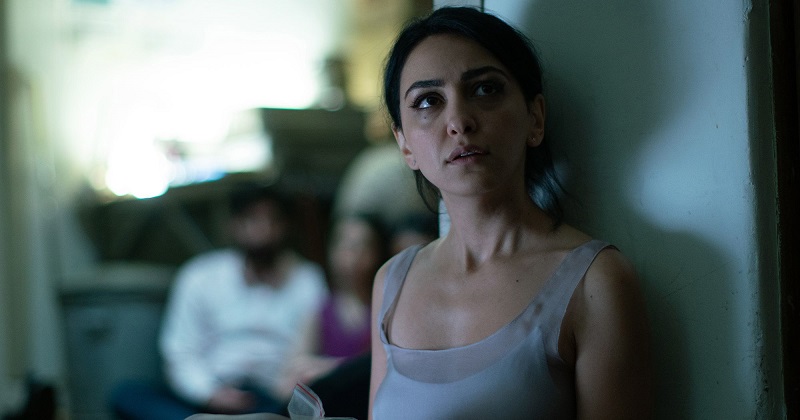
Maras could not have impressed more with his big screen debut. He has such an astute command of the art of cinema and utilizes those gifts so expertly that the entire Mumbai community should be proud that he delivered the ultimate tribute to their resolve and valor. The way in which he uses pacing, tone, his score and above all else, a keen awareness of the overall arc of this story and the true points that need to be made throughout, is uncanny for someone with so “little” experience making movies.
Hotel Mumbai is a tough one to experience, but it must be experienced.
Grade: A+

